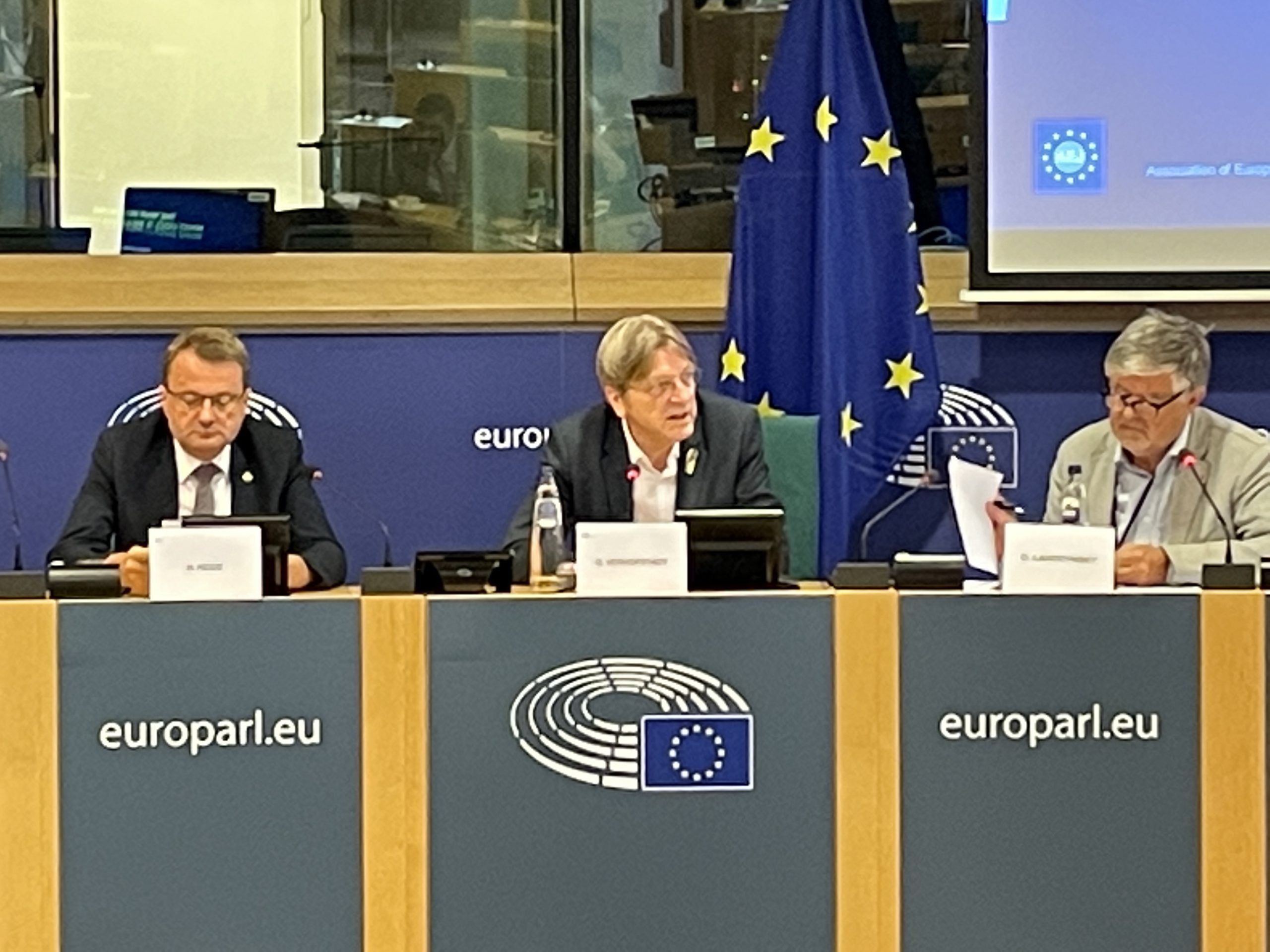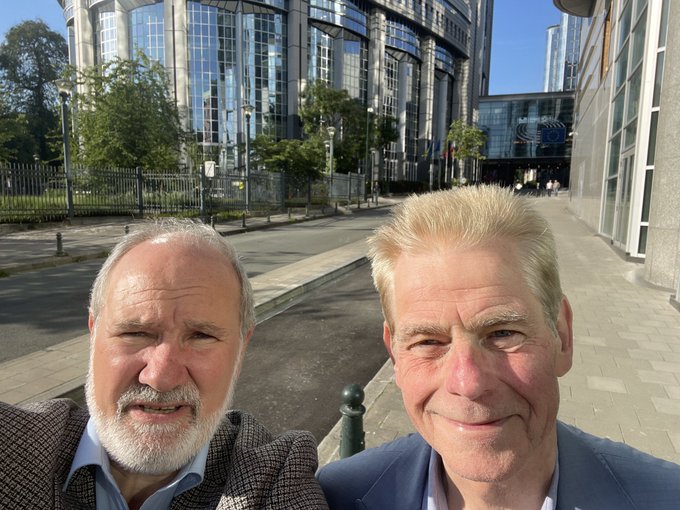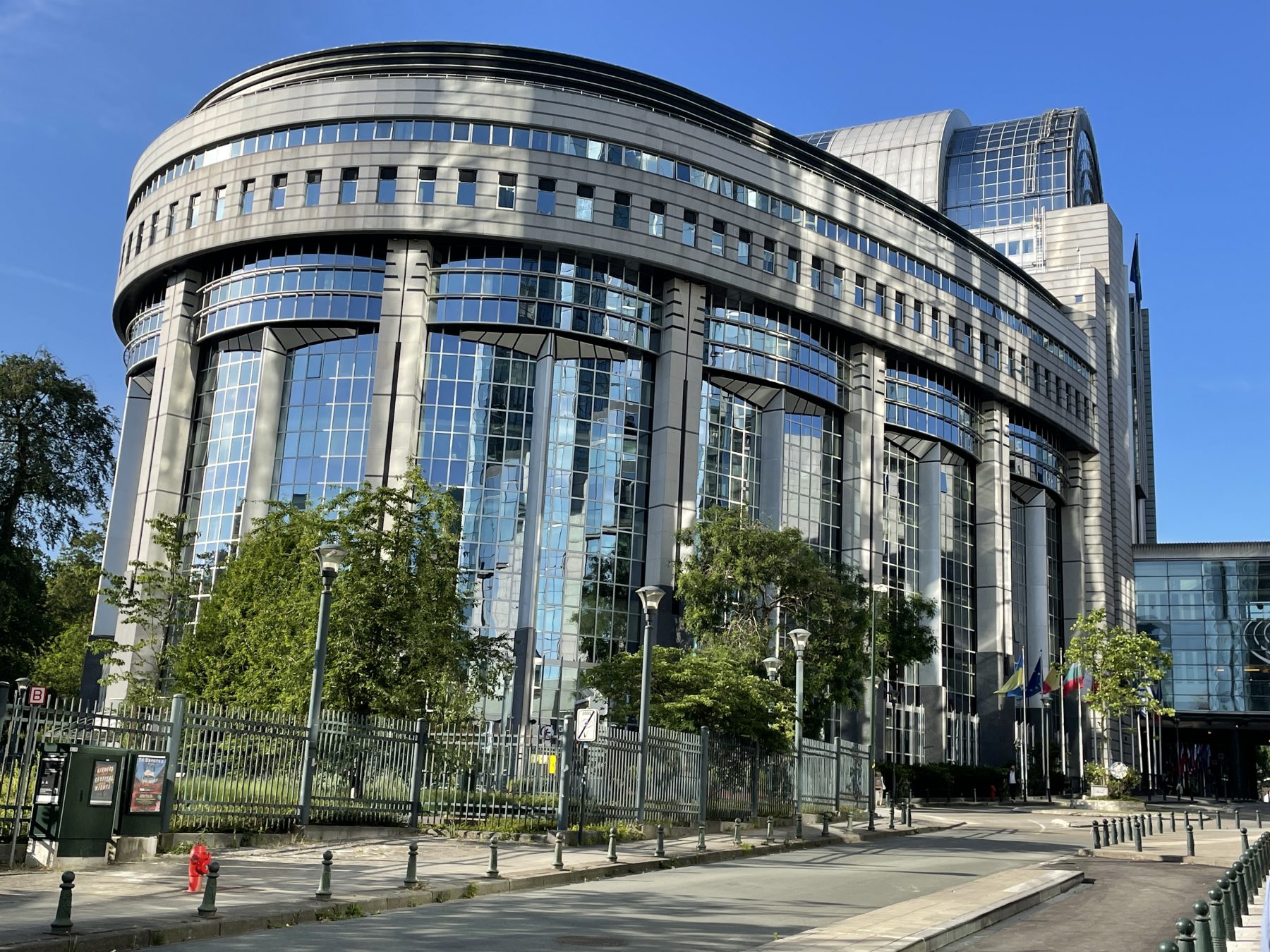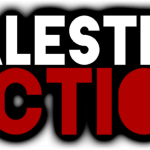Besides the focus on media, the AEJ’s day-long seminar on the effects of the war in Ukraine on Europe exposed some changing attitudes in Europe towards NATO and the UK as AEJ UK treasurer David Worsfold notes.
Europe needs NATO and it wants the UK
David Worsfold
The Association of European Journalists seminar on media freedom and the implications of the war in Ukraine held in the European Parliament on 16 June was a real eye opener for a Brit expecting to spend most of his time apologising for the mess his country has made of its relationship with the European Union.
Brexit was barely mentioned.
Russia’s barbarous assault on Ukraine has changed everything. It has changed the priorities of the European Union and its member states and it has changed their attitude to Britain.
The Baltic states and those countries most threatened by Russian Imperialism now look to the UK as a stalwart ally. They are quick to praise us for matching our words about standing with Ukraine with weapons and tougher sanctions than the EU has put in place.
Indeed, the UK was used by some speakers at the one-day event as an exemplar against which other major European powers must now be judged – and have been found wanting.
The war in Ukraine has also changed key elements of the EU’s agenda, especially around the long-standing ambition of many in the EU to form a European Defence Force.
The flamboyant Belgian MEP Guy Verhofstadt came close to ridiculing the concept. He said Europe was made up of “27 different armies that like to give the impression they work together” but find it almost impossible to do so because of the duplication of weapon systems and their incompatibility.
He said across the EU there were 130 major weapon systems compared to just 25 for the vast US military machine.
“Common defence procurement would be a start but the 2% target [of GDP] is only worth
achieving if you solve the problem of duplication and compatibility”, said Verhofstadt.
NATO is the key to the defence of Europe with the aim being to strengthen the European pillar of NATO.
This was taken up by other speakers.
Austrian MEP Hannes Heide said “NATO is the future. European defence is in the hands of NATO for the immediate future”.
Roland Freudenstein, vice-president of the GLOBSEC think-tank and head of GLOBSEC Brussels went further: “NATO needs to evolve into a world organisation defending the interests of liberal democracy worldwide”.
He painted a bleak picture of a world where liberal democracy is in retreat, warning of the threat China in particular, posed: “We have already given up on Hong Kong. Tomorrow it could be Taiwan”.
Throughout the day, the role of a free, independent media in these conflicts was a central theme with an acknowledgment that information was now one of the five battle spaces of international conflict, along with land, sea, air and space.
There were many powerful contributions to the sessions on media freedom which have been covered by AEJ media freedom representative and AEJ-UK chair William Horsley.
The praise for the UK’s strong stance was also frequently evident whenever the discussion moved onto the impact of sanctions, with speakers urging unity and resilience in terms similar to those Boris Johnson has been using in this week of summits around Europe.
“What is solidarity if you don’t suffer yourself?”, asked Verhofstadt, as he urged quicker and tougher action against the import of Russian oil and gas.
On a day when the UK announced it was extending its list of individuals being sanctioned, including the Russian Orthodox Patriarch Kirill, Verhofstadt said the EU was being far too timid. He produced a thick file of papers which he said contained details of 6000 people “who are the backbone of Putin’s regime” and who should be sanctioned immediately.
The Lithuanian ambassador to EU, Arnoldus Pranckevicius, also picked up the need for the whole of Europe to display “increasing democratic resilience”, adding “This is not the moment to feel comfortable. We are all in this together”.
The changed attitude of many Europeans towards Britain was underlined in the final session discussing Ukraine’s future in the EU, a crucial session in the days before the EU decision to accept its candidature.
I challenged the Slovak MEP Ivan Stefanec to define what he meant when he said Ukraine must win the war. Did he mean that there would just be a ceasefire leaving large parts of Ukraine under Russian control, was it a return to the pre-24 February boundaries, or a restoration of Ukraine’s full territorial integrity on the pre-2014 borders?
His answer was clear: full territorial integrity as “anything less would be appeasement”.
He concluded by paraphrasing Winston Churchill – not the first time he had been mentioned during the day – saying “We don’t want peace. We need victory”.
Who could have imagined MEPs quoting Churchill back at a British journalist? It seemed to
sum up the change of mood in Brussels.
Media, politics and war
More details of AEJ seminar at the European Parliament










